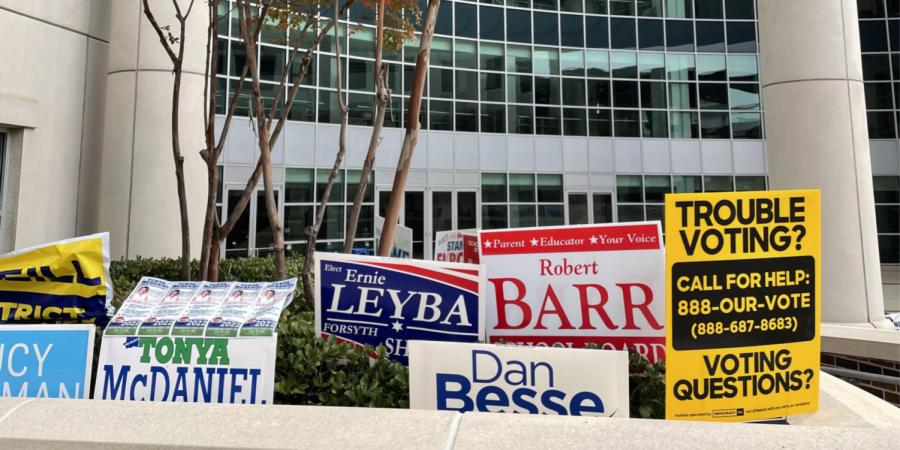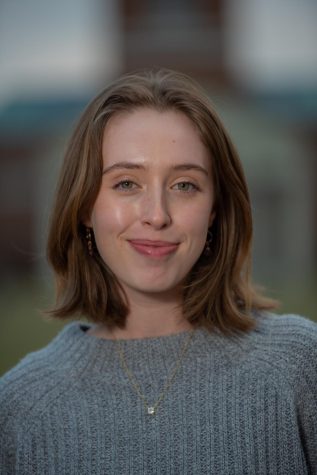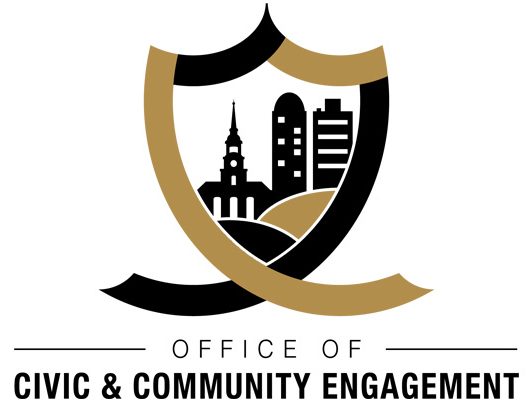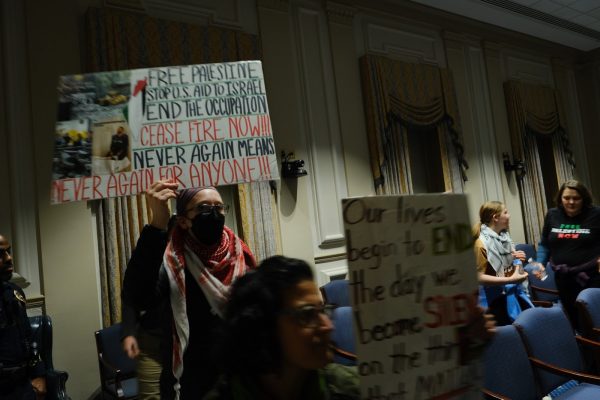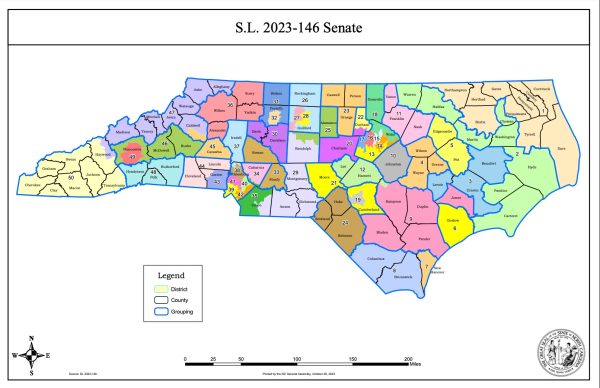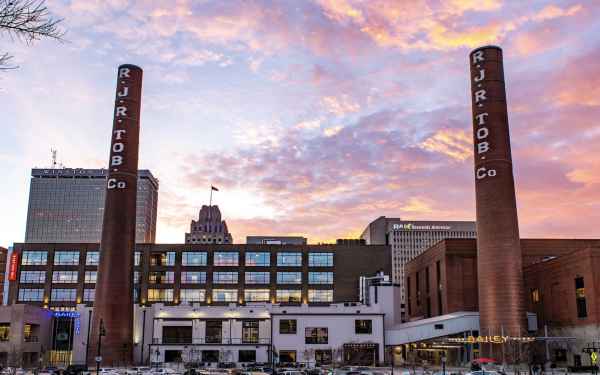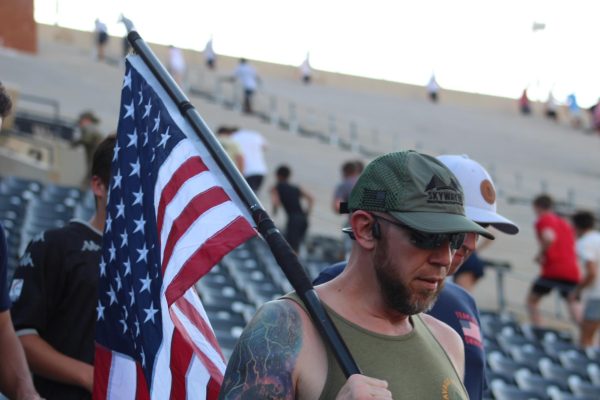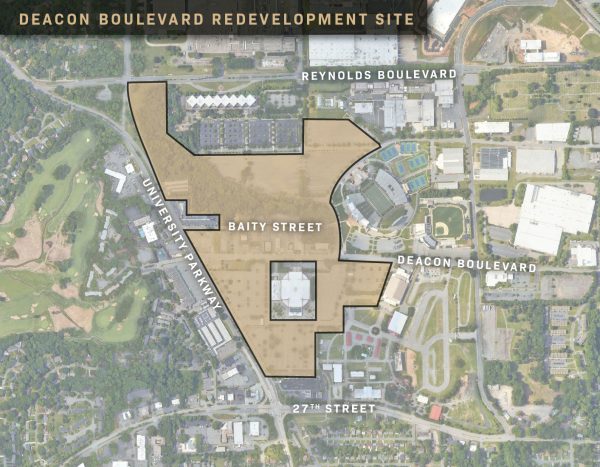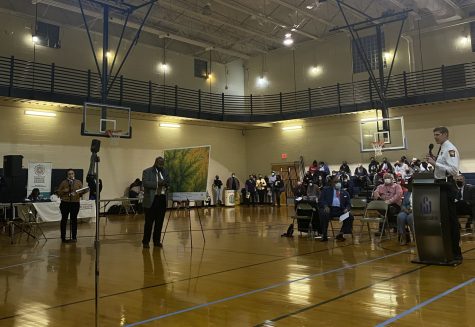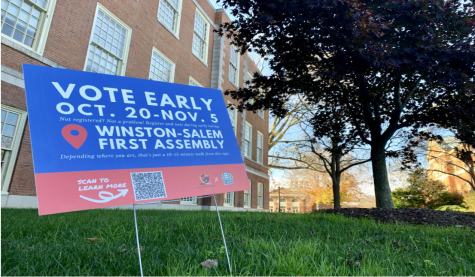A look at voter turnout in Forsyth County
The voter turnout in Forsyth County was slightly below the statewide average, but some of those that did vote shared what drove them to the polls
Various signs promoting candidates running for local office are placed outside the Forsyth County Government Center, which served as an early voting site in downtown Winston-Salem.
November 16, 2022
Jamaal Womble, 42, stood outside the brick building of the Malloy/Jordan East Winston Heritage Center Branch Library in Winston-Salem, NC. He was wearing a cap that blocked the setting sun out of his eyes as he passed out flyers for the Forsyth County Republican Party.
“Voting is important to me because as a Christian I’m supposed to keep up my community. If I don’t try to vote for the right people that’s going to be better for the community, I’m doing a disservice to myself and my fellow people,” said Womble, the son of the late state representative Larry Womble (D-71). “So I need to come on. I let my voice be heard to have some positive impact.”
The main issues that drove Womble out to vote were religious freedom and the freedom of speech.
“After the last election, it’s gone too radical, with too many voices being silenced. I like a more civil discourse and having more freedom of exchange of ideas. So that’s one of the things that I feel like we kind of lose in this current climate,” Womble said. “So I’m a Christian independent. I welcome all ideas, but with this climate, I think they don’t welcome all ideas as they claim to.”
A few minutes later, Julia Johnson, 24, walked out of the voting center donning a Wake Forest sweatshirt. She is new to Winston-Salem, having moved here to study at Wake Forest School of Law. For her, the contention over reproductive rights, mass incarceration, LGBTQ+ rights, human rights and health care brought her to the polls.
“It’s important to me specifically with what happened with Dobbs v. Jackson Women’s Health Organization and all of the judicial seats. Also, there’s a woman running for District Attorney who is associated with my school program. So I really care about her and her election and stuff,” Johnson said.
Womble and Johnson are two out of the 133,270 voters who showed up to vote in Forsyth County on Election Day and during the early voting period, for a turnout of 49.4% of 269,937 registered voters. Turnout was slightly lower than in 2018, the last midterm election, when 52.5% of voters cast ballots. In the last presidential election of 2020, the voter turnout rate was 74.4%.
Richard Allen, 70, is a poll greeter for the Forsyth County Democratic Party. He spent the two weeks of early voting — from Oct. 20 to Nov. 5 — at the county government building downtown, dismayed by low turnout.
“For whatever reason people don’t think that they need to cover the midterms which cover local issues. However, local issues and state issues, all of them are important,” Allen said. “You can’t just get one position at the top and expect things to be better down here, unless you have checks and balances throughout the system.”
John Dinan, a professor of political science and international affairs at Wake Forest University, specializes in state politics and constitution. According to Dinan, the turnout in Forsyth County is slightly below the statewide average this year.
“Voter turnout may have been slightly reduced in Forsyth County compared with some other counties around the state because there were relatively few competitive state legislative elections in Forsyth County, compared with some other counties such as Wake County, which featured a number of heavily contested state legislative races and recorded a voter turnout level of 54.5%,” Dinan said in an email. “The general expectation is that heavily contested races and significant spending on TV ads in contested races play a big part in boosting voter turnout.”
Dan Rose, an assistant professor of sociology at Winston-Salem State University and a member of Crystal Towers United and Housing Justice Now, worked to provide residents of the apartment building on West Sixth Street with rides to the polls. Rose noted that requests for rides were significantly down this election compared to the primary in May, when around 30 residents from Crystal Towers requested rides to the polls.
“Now here in the fall, we’ve done it again … We’ve offered residents rides to the polls, and some did take advantage of it again this time, but not as many as in May during the primary,” Rose said.
Rose attributed this lack of voter turnout to a lack of candidates’ engagement with the Crystal Towers community as well as the fact that Housing Justice Now member Phil Carter ran in the primary but not in this general election.
“I don’t think any of the candidates from either party visited Crystal Towers or had volunteers canvassing Crystal Towers, so that folks would even know who these folks are that are running for office,” Rose said. “And I think there’s a real failure of our political leaders to even connect with voters like the ones that Crystal Towers and give them a little information about who they are, aside from all these crazy ads that you see on TV.”
Beverly McFadden, who is retired from the Winston-Salem Department of Recreation and Parks and now plays drums with local bands, rode her gold Harley Davidson motorcycle to vote at the Rupert Bell Neighborhood Center Tuesday afternoon. She was interested in getting Denise Hartsfield elected as District Attorney as she admired Hartsfield for her work with young people. “I’ve seen what she’s doing in the neighborhood. I’ve seen her with these kids down here and she tells them they can dream,” McFadden said.
She came out to vote to elect candidates who can work across differences.
“I just want to keep things in a balance,” McFadden said. “Just because we disagree with one another doesn’t mean we can’t work together.”
Aine Pierre and Professor Phoebe Zerwick contributed to reporting.


